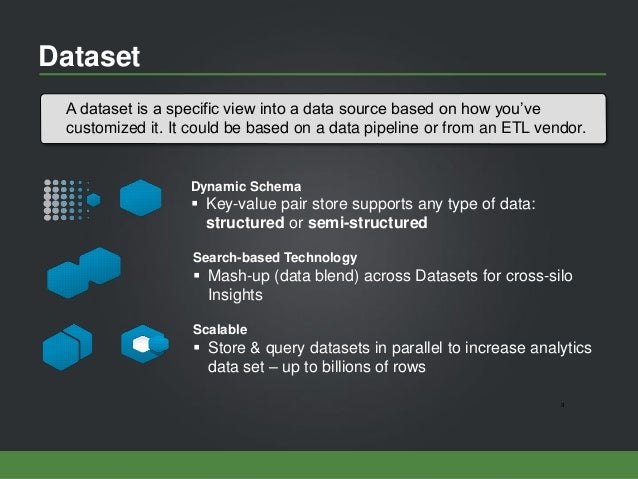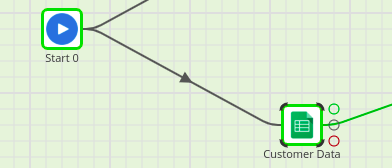
Let's start first by mentioning what the Asynchronous process is, and how it is used in Salesforce. Asynchronous processes are requests which do not execute at the same time but execute separately one at a time.
What are the different types of asynchronous apex Salesforce?
Types of Asynchronous Apex Salesforce Future Methods: It is the basic Asynchronous apex in Salesforce that is used to prevent any delay in a transaction during a web callout. Batch Apex: This Asynchronous Apex Salesforce feature is used to process multiple records for the job together that require a larger query result.
How do I manage asynchronous apex processes?
Choose the asynchronous Apex feature that best suits your needs. This table lists the asynchronous Apex features and when to use each. For long-running jobs with large data volumes that need to be performed in batches, such as database maintenance jobs Take control of your asynchronous Apex processes by using the Queueable interface.
What is future method in Salesforce apex?
Future Methods in Salesforce asynchronous apex It is the basic Asynchronous apex in Salesforce that is used to prevent any delay in a transaction during a web callout. A future method executes when it has resources available. A future method runs in the background, asynchronously.
How to schedule synchronous web service callout in Salesforce apex?
Synchronous Web service callouts are not supported by the schedule Apex, to make call out we have to make use of the Asynchronous call out, however, a batch can job can be scheduled and callouts are supported from the batch.

What are different types of asynchronous methods we have in Salesforce?
There different ways to implement Asynchronous process in Apex.Future methods.Batch Apex.Queueable Apex.Scheduled Apex.
What are synchronous and asynchronous in Salesforce?
Synchronous term means existing or occurring at the same time. Synchronous Apex means entire Apex code is executed in one single go. Asynchronous Apex :- Asynchronous term means not existing or occurring at the same time. Asynchronous apex is executed when resources are available.
What are asynchronous jobs in Salesforce?
In Salesforce, records in the 'AsyncApexJob' table represents Apex jobs to run asynchronously when resources are available. Examples of these asynchronous Apex jobs include Future Methods, Queueable Apex, Batch Apex and Scheduled Apex.
What is asynchronous flow in Salesforce?
2-Adding Asynchronous Path on Record-Triggered Flows After creating a record-triggered flow, you can add an asynchronous path to execute the elements after the record operation that caused the trigger ends. Using this feature, flows can be more optimized and they can handle large data volumes.
What is the difference between future method and Queueable?
Differences between Future and Queueable Apex: Future will never use to work on SObjects or object types. 2. When using the future method we cannot monitor the jobs which are in process. 3.
Is batch Apex synchronous or asynchronous?
asynchronous executionBatch Apex is asynchronous execution of Apex code, specially designed for processing the large number of records and has greater flexibility in governor limits than the synchronous code.
What is a asynchronous process?
An asynchronous process is a process that the Workflow Engine cannot complete immediately because it contains activities that interrupt the flow. Examples of activities that force an asynchronous process include deferred activities, notifications with responses, blocking activities, and wait activities.
Can we call asynchronous method from another asynchronous method in Salesforce?
There's no rule that says that "asynchronous cannot call asynchronous". There are specific rules in place, such as "future cannot call future". A Queueable can call another Queueable, a Batchable can call another Batchable in the finish method, and Scheduleable methods can call Batchable and Queueable methods.
What does asynchronous work mean?
"Asynchronous work is a simple concept: Do as much as you can with what you have, document everything, transfer ownership of the project to the next person, then start working on something else." Asynchronous work is growing in popularity because it significantly benefits both employees and employers.
What is asynchronous apex?
An asynchronous process is a process or function that executes a task "in the background" without the user having to wait for the task to finish. Here’s a real-world example.
What is a queue based asynchronous processing framework?
The platform uses a queue-based asynchronous processing framework. This framework is used to manage asynchronous requests for multiple organizations within each instance. The request lifecycle is made up of three parts:
Why use Apex?
You’ll typically use Asynchronous Apex for callouts to external systems, operations that require higher limits, and code that needs to run at a certain time. The key benefits of asynchronous processing include: User efficiency.
When to make a callout to a web service?
Make a callout to a web service when a user updates a record.
Do you get higher limits with async?
Not only do you get higher limits with async, but also those governor limits are independent of the limits in the synchronous request that queued the async request initially. That’s a mouthful, but essentially, you have two separate Apex invocations, and more than double the processing capability. This comes in handy for instances when you want to do as much processing as you can in the current transaction but when you start to get close to governor limits, continue asynchronously.
Is asynchronous operation mutually exclusive?
It’s also worth noting that these different types of asynchronous operations are not mutual ly exclusive. For instance, a common pattern is to kick off a Batch Apex job from a Scheduled Apex job.
What is asynchronous programming?
Asynchronous Programming is a methodology in which statements will not be executed one after the other. let’s say we have 10 lines of code and one of the statements in these 10 lines is a setTimeout () statement and lets go with the assumption that we want it to get executed after 10 secs. Then the execution comes to this setTimeOut () statement and the moment the execution hits this statement, we are telling the computer I want to run this function but I don’t want to do it at least for a 10000 milliseconds in the future. So once 10 seconds from now gets passed that’s when I want this statement to get executed.
When to use asynchronous coding?
Often we use this format of coding when we want to get data from other systems or when we make AJAX calls and etc. So we make the call and the thread doesn’t know when the response is going to comeback. This is Asynchronous Programming.
How many lines of code are executed in synchronized programming?
In Synchronous programming statements will be executed one after the other. Say, we have 10 lines of code, then each and every line will be execute one after the other. So first line has to be executed it's only then the execution jumps to the second line. Likewise, second line has to be executed, only after that execution jumps on to the third line, so one and so forth. So, If our first statement is dealing with fetching list of Account records, until we get the data, execution will not jump on to the next line.
How many methods can be called in a single apex?
No more than 50 methods with Future annotation can be called in a single apex invocation.
What is batch apex?
Batch Apex: To do bulk processing of records or for the jobs that require larger query result for example processes like Database maintenance jobs. Schedule Apex: This feature is used to schedule the invocation of an apex class at a specific time, this can be a recurring event or a one-time task.
What is Salesforce governor?
Salesforce Governor limits us to build a long running process like data cleansing or data archiving, where records more than 50000 are being processed at one time. To fulfill this requirement Salesforce has to introduce the batch Apex, a batch job makes smaller chunks of the data which is known as batch size and then asynchronously work on each batch in a separate thread and therefore not hitting the governor limit.
What is queueable apex?
Queueable Apex is also a way of running Apex jobs asynchronously and to make a class Queueable we need to implement an interface i.e. Queueable interface . With the help of this interface, we can queue jobs and also monitor them, this is an enhanced way of running the asynchronous process as compared to the future method.
How many batches of Apex can be tested?
While testing only one batch of apex can be tested using test.starttest () and Test.StopTest methods ().
How many jobs can be held in Apex Flex?
Upto 100 jobs can be held in the Apex Flex queue.
Why is the Future method used?
The specialty of the Future method is that it executes when the resources are available and does not out overhead on the server. This is the reason that execution of the code does not have to wait for the completion of a long running operation and also we get higher Governor limits when we use Asynchronous Apex.
What is a common pattern in asynchronous processing?
A common pattern is to pass the method a list of record IDs that you want to process asynchronously
What is Salesforce queue?
Salesforce uses a queue-based framework to handle asynchronous processes from such sources as future methods and batch Apex. This queue is used to balance request workload across organizations. Use the following best practices to ensure your organization is efficiently using the queue for your asynchronous processes.
How to ensure fast execution of batch jobs?
To ensure fast execution of batch jobs, minimize Web service callout times and tune queries used in your future methods. The longer the future method executes, the more likely other queued requests are delayed when there are a large number of requests in the queue.
Why use future methods?
Each future method is queued and executes when system resources become available. That way, the execution of your code doesn’t have to wait for the completion of a long-running operation. A benefit of using future methods is that some governor limits are higher, such as SOQL query limits and heap size limits.
When to use @future annotation?
Use @future annotation before the method declaration.
Can a future method invoke another future method?
A future method can’t invoke another future method.
Can you perform DML on salesforce calls?
you cannot perform DML on what salesforce calls setup objects and non-setup objects in the same context. with the help of future methods, we can do that.
